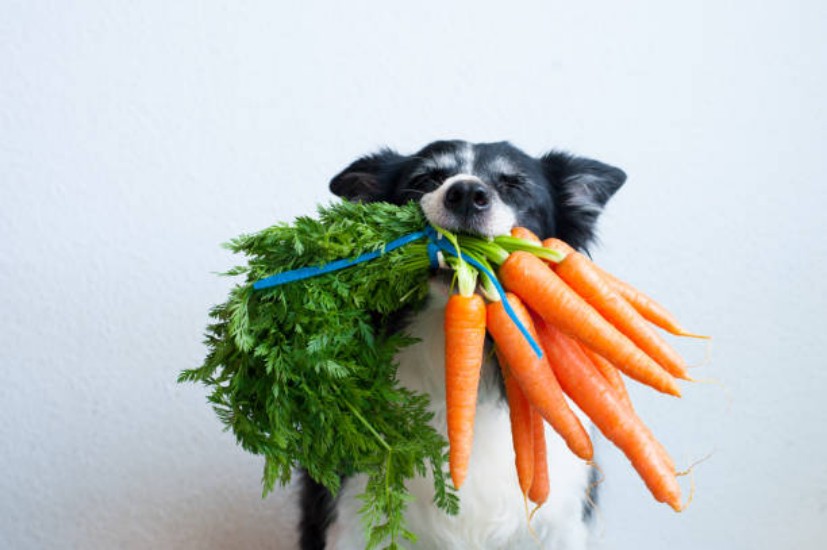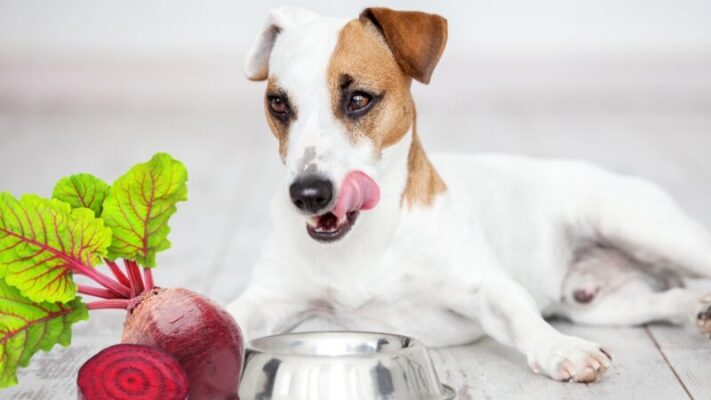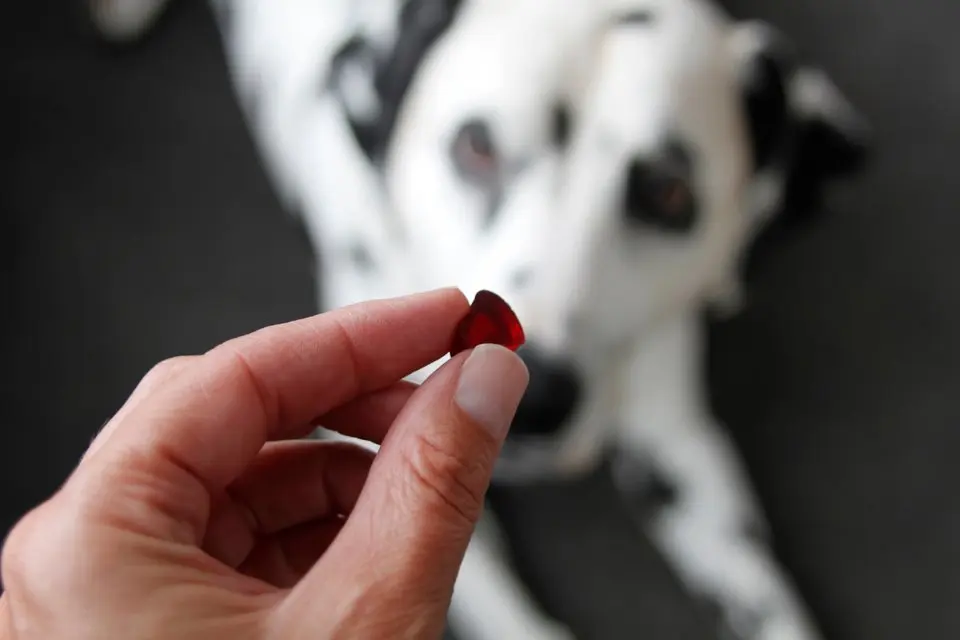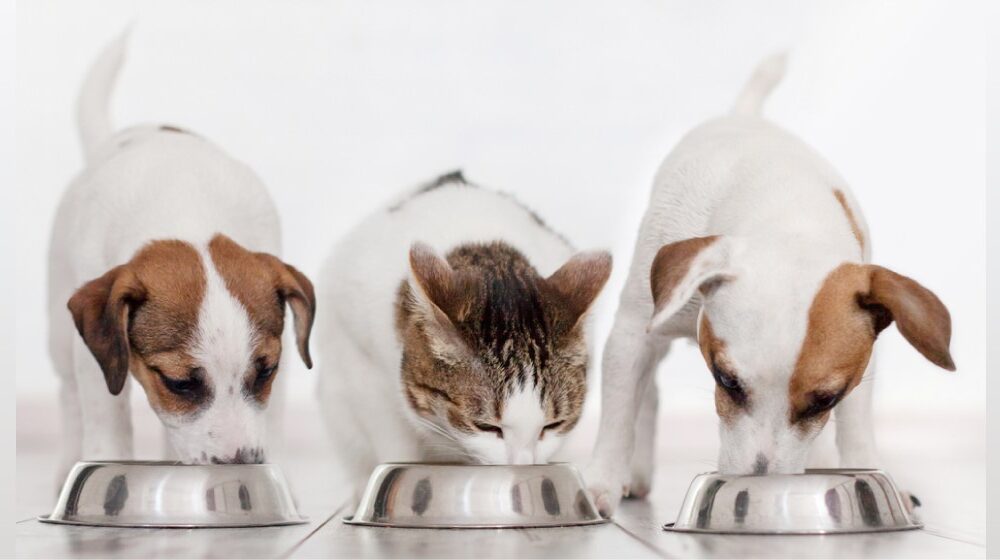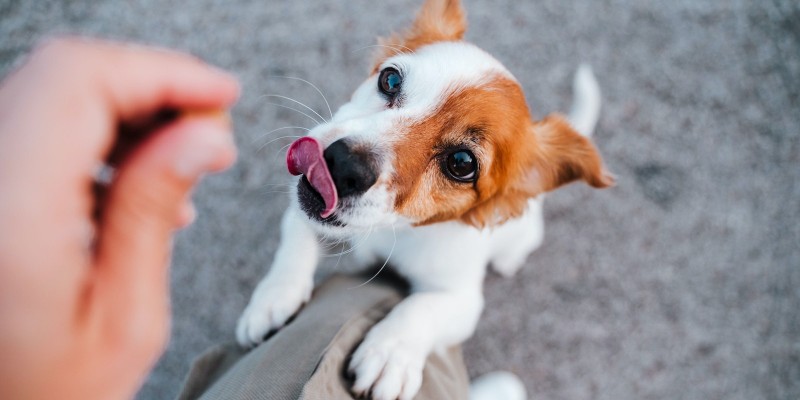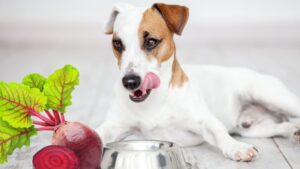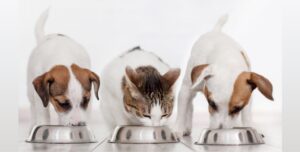Helps Maintain Healthy Digestive Function
Carrots contain soluble and insoluble fiber. They each act differently and provide their own benefits, but both types are important for regular bowel movement and to help prevent digestive disorders.
Helps Eliminate pet Diarrhea
The soluble fiber in carrots helps pull fluid from the digestive tract and creates a slow-moving gel. As a result, the thick substance slows digestion, stools are firmed up and diarrhea is eliminated.
Helps Relieve Constipation in pets
The insoluble fiber in carrots can help promote regularity and prevent constipation. When the insoluble fiber moves through the digestive tract, it pushes out waste and speeds up digestion.
Promotes Gut Integrity and Gut Health
Carrots can help soothe and calm an irritated digestive tract, reduce inflammation in the gut, and can help heal the gut lining. Gut health is very important because many diseases, including some that appear unrelated, can be caused by problems in the gut.
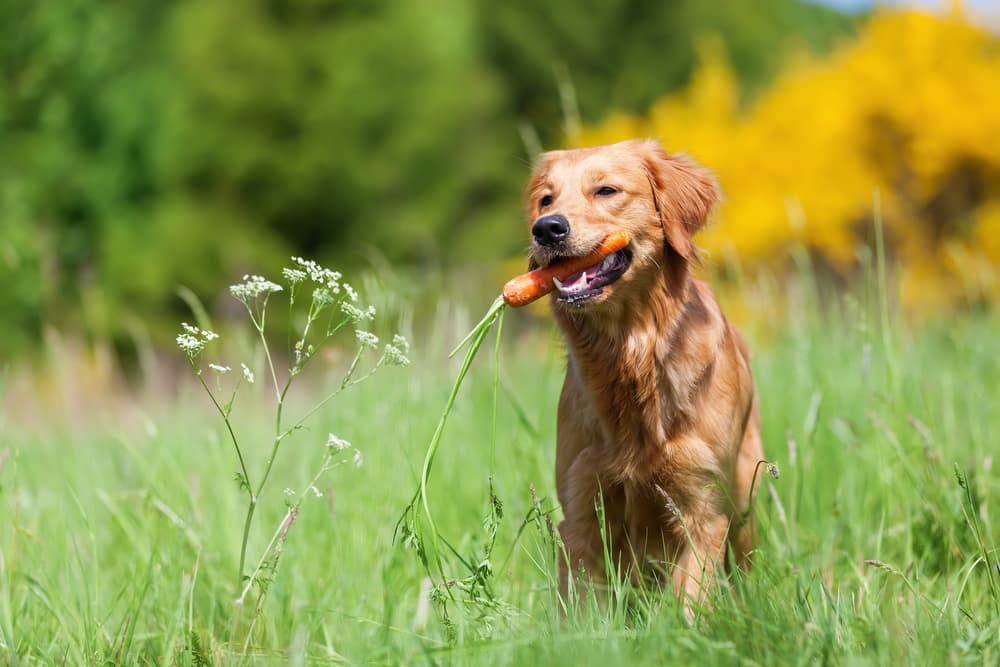
Helps Prevent and Remedy Anal Gland Issues
Carrots are perfect for adding fiber to commercially processed foods, and even some raw or home-cooked foods that are too soft. The carrot fiber helps push the waste out during defecation, and with firmer stools the anus is expanded wider, helping to express the anal glands.
Acts as a Natural Intestinal pet Wormer
Carrots contain a volatile (essential) oil that kills intestinal worms naturally.
Chlorine and chemicals
Improves the Immune System
Because of the vitamin C, and a number of antiseptic and anti-bacterial contained in carrots, they help increase the production of white blood cells which are essential for a healthy immune system.
Promotes Healthy Skin
The various vitamins, carotenoids and antioxidants in carrots help to nourish the skin. This helps relieve and prevent dry and itchy skin, dermatitis and rashes.
Promotes Shiny Coat
The beta-carotene in carrots promotes healthy and shiny coat, enhances coat color, markings and pigmentation.

Promotes Eye Health
Carrots are rich in beta-carotene, a precursor to vitamin A. Carrots also contain lutein, an important antioxidant. Both help prevent cataracts and molecular degeneration.
Purifies the Blood
Carrots contain vital alkaline elements that have the ability to purify and re-energize the blood by keeping the acid and alkaline metals, as well as blood sugar levels, in good balance.
Help Cleanse the Whole Body
Carrots help cleanse the whole body due to the abundance of beta-carotene, a precursor to vitamin A, which assists the liver in flushing out toxins. It also prevents bile and fat to accumulate in the liver. Carrots are full of fiber, which helps maintain a healthy digestive system and facilitates the waste elimination.
Supports Bone Heath
Carrots are a good source of vitamin K and calcium, both of which help keep bones strong. Calcium is vital for growth and development of bones in puppies and young dogs.
Promotes Healthy Thyroid Function
Carrots contain many of the nutrients that promote healthy thyroid function. Beta-carotene, the precursor to vitamin A and one of nature’s most powerful antioxidants, along with the B-complex vitamins, and vitamin C, help promote normal adrenal function and glandular activity. The calcium, magnesium, manganese, selenium, silicone and zinc in carrots helps protect the glands.

